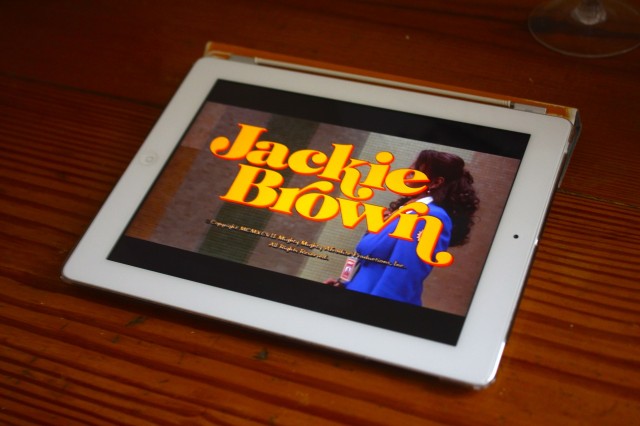Meet the “inventor” of the week: Patent troll owns pre-release digital movies
Patent lawyer sued Apple, Amazon—and a company owned by troll-hater Mark Cuban.
Stream movies before they're released? (Pretend Jackie Brown is the hot, new VOD option...)
Nathan Mattise
What's a troll got to do to get some attention these days?
Here's one company that nailed it this month: Red Pine Point LLC. The Nevada LLC patented the idea of downloading movies and watching them before they've been released in theaters.
Now, it's gone ahead and sued the company that actually has innovated in that space: Magnolia Pictures, which had its pre-release movie business up and running by 2004. That's a full two years before Red Pine Point's patents were filed.
You've got to give Red Pine Point credit for boldness. Magnolia is owned in part by Mark Cuban, a wealthy entrepreneur who famously hates trolls. In fact, Cuban has funded a full-time attorney position at the Electronic Frontier Foundation to fight trolls and related problems: the Mark Cuban Chair to Eliminate Stupid Patents.
"Could there be a more ridiculous patent ever issued?" seethed Cuban on his blog last night. He goes on to explain how Magnolia actually created the pre-theater-release business. "Magnolia is able to do it [sell pre-release movies] because we also own the Landmark Theater Chain and we can work with the independents to expand the theatrical distribution." He continued:
When you look at the VOD or PPV or on Amazon or ITunes and see “Before it's in theaters” movies for sale or rent or PPV, that is a category that we created and grew to where it is today.Red Pine Point has filed four lawsuits in all, with two defendants each. Magnolia was sued in two suits, one featuring Amazon as a co-defendant and one featuring Apple. Weinstein Company was also sued, again, together with Apple and Amazon.
This patent is not protecting a business the Troll came up with. It's not protecting an invention they created. They were not operating in this business in any way shape or form that I can find. They simply took the obvious idea that if movies can be downloaded and released via the Internet, they same thing will happen via cellular data. And they probably noticed what we were doing back in 2004 and decided to try to patent it. Well they got the patent. Amazing!
A lawyer-inventor strikes again
So who is Red Pine Point?Red Pine Point is managed (and likely owned) by Philip Lyren, a patent lawyer who is also the named inventor on the two patents used in his lawsuits. Lyren is registered with the Texas State Bar but appears to do business in Ohio. Neither he nor his outside counsel on the patent suit returned inquiries from Ars seeking comment about the case.
Lyren doesn't appear to have any experience working in the movie industry, but he does have experience prosecuting patents, and he appears to have prosecuted the two patents in these lawsuits himself. The patents are numbered 8,521,601 and 8,424,048; they were filed in 2006 and granted last year.
Philip Lyren's co-inventor appears to be a relative who does claim industry experience: Robert Lyren. That would seem to be the same Robert Lyren who has accounts on Twitter and Vimeo, where he describes himself as a film and video director living in Bangkok, Thailand. Patent documents connected to the '048 application show both Lyrens as living in Bangkok. The other patent application shows both living in Ohio.
Philip Lyren appears to be the latest example of a "lawyer-inventor" being behind a patent lawsuit, a trend that really got going around 2008.
As patent trolling accelerated and became an industry, some patent attorneys weren't satisfied merely litigating patent cases: they wanted to get their own patents, suing for infringement of the intellectual property they had actually created.
Often, the lawsuits were over "inventions" that only existed in the offices of the lawyer-inventors. In 2009, Google's top patent lawyer wrote about the "disturbing trend," noting: "[T]he patents being asserted against us are owned by—and in a surprising number of cases, are even 'invented' by—patent lawyers themselves."
One recent example includes the first patent lawsuit against Twitter, which was over a patent on a "virtual community of famous people," issued to a Virginia patent lawyer, Dinesh Agarwal. That patent was invalidated at a jury trial.




No comments:
Post a Comment